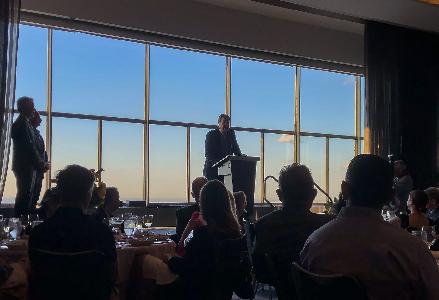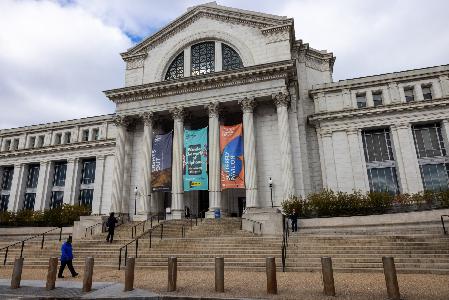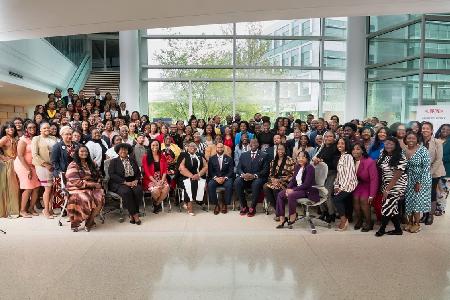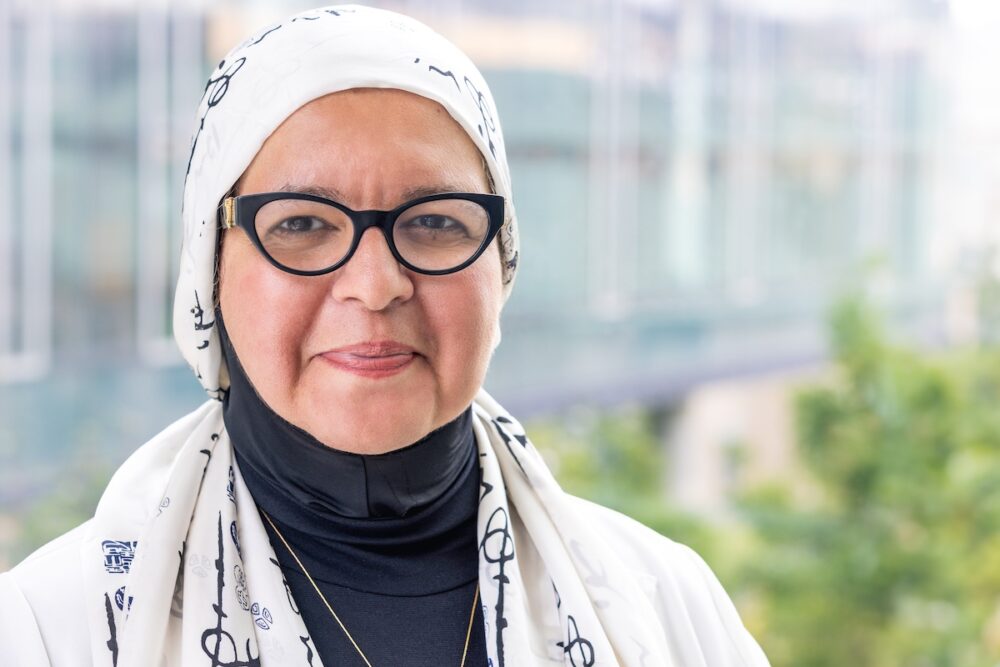
This is How I Got Here, a series where we chart the career journeys of technologists. Want to tell your story? Get in touch.
One side of it is administration, which means creating an environment where people in her department can thrive and do their best work related to language and information technologies within the Oakland, Pittsburgh-based university’s School of Computer Science.
The other side is research, where Diab conducts scientific investigations and works on exciting things related to generative artificial intelligence, with a focus on a “responsible thinking” framework.
Diab is an expert on Arabic natural language processing, multilingual processing and computational social sciences. After growing up in England, she told Technical.ly, she did her share of exploring subjects, ranging from archeology to computer science in the American Embassy in Cairo, Egypt. She then earned her master’s degree at DC’s George Washington University and her Ph.D. in computational linguistics at University of Maryland College Park.
Now, after leaving her role as the lead responsible AI scientist at Meta to join CMU in August, Diab feels her current position is a full-circle moment that brings all of her previous interests together.
Here’s a look at Diab’s tech career so far. This Q&A has been edited for length and clarity.
Technical.ly: What are your day-to-day tasks and responsibilities in your current position?
Mona Diab: A lot of administrative stuff. I’m still ramping up. I joined, like, literally a month ago, and it’s been me trying to understand the culture, trying to understand the mindset that we have, and some of the different aspects of the department when it comes to the budget, the teaching loads, the classes, and also at the same time, I need to be supervising what’s going to be offered in terms of our teaching and our different classrooms for next semester.
It’s also the research landscape, and also the university landscape. I’m also having a lot of meetings with my colleagues who are [the] heads of other departments within the school. And in fact, today, we just had a meeting with all the heads of departments across the university. So again, it’s because at the beginning of the semester, there’s a lot of activity going on … coupled with the fact that I’m new to the department and new to the whole CMU environment, that’s been taking up a lot of my time as well.
What about your new position excites you the most?
It’s a premier university. I don’t know if you know, but CMU is number one in artificial intelligence, which is just my area of expertise. So, you’re surrounded by amazing people, thought leaders, amazing students, and fantastic infrastructure. It’s a really exciting environment to be in for this time, especially given the importance of AI and how it’s making its way into the public.
We, people who specialize in this area, are used to where we’re confined, typically to our own little departments. But now it’s been, you know, taking center stage on a large platform.
It feels like we actually also have another obligation around how we interact with society at large. And how do we actually translate whatever we do into messages that people can understand? So that’s really very exciting. I feel like this is an interesting mission that I don’t think existed before.
What made you want to get into tech?
I really got very interested in, let me put it this way, enabling people, and how can we better expedite processes.
I was also very interested in artificial intelligence because I’m very mathematical, but at the same time, I had this half of my brain that was very interested in philosophy and different aspects of language and stuff like that. I grew up very fascinated with language. So I wanted to do something like around mathematics and language. When I discovered computational linguistics and AI, it was like the perfect marriage of the two sort of sides of my brain. And then I realized the impact it had on our communities and our societies, especially when Google started showing up, and Facebook and all these social media environments, it was like, “Oh, my God, this is exactly where we should be putting technology to the best use,” essentially.
What do you feel has been one of the biggest challenges you’ve had in your career so far?
So far, the challenges have been [that] as a female in tech, you don’t necessarily always have a voice. I’ve definitely worked very hard and tried to have a voice by being very active in the communities that I belong to and so on. But it’s not necessarily that easy. It comes with a significant price of like, basically affecting my health, affecting my familiar relationships, and so on. It’s unfortunate that we still have disparities in our communities, where the male-female gaps are still pretty pronounced. Being a woman saying the same thing as a man is not necessarily always heard.
One aspect of my work is around trying to empower women more. In fact, [I] created a Facebook group called Global Women in NLP, which is our area of expertise, and people flocked to it. Within a day, we had almost 500 people subscribe to this. It’s like a safe space for women to express their frustrations, to seek solutions, [and] to get the wisdom of the elders in the field on how to navigate certain situations.
What’s something that you’ve done in your career so far that you’re really proud of?
I spent a long time working on low-resource languages, especially focusing on Arabic, which is a very complex language family. I’m very proud of the kind of work that I did. I did it together with my students and my collaborators, so I cannot just take credit for myself, but essentially, [it was] building the foundations for a thriving technology suite for Arabic languages. And being able to have that go back to the countries that speak Arabic and enable their own students [and] enable their own researchers to do research locally — that for me is a big deal. It was basically this empowerment associated with our technologies.
I would say that most of the work that we did has had a huge impact on how technologies evolved in the Arab world and Arabic-speaking countries and private-speaking populations.
What advice would you give to any aspiring technologists who might read this?
My advice to everybody working in any field is just to find what you’re passionate about. I think passion is critical. Don’t think that you are going to get X job or Y job. It’s really about being passionate about what you do. If you do good work, and you do it, of course, with calculated risk, then you’re always going to end up in a good place.
Of course, there’s luck involved in this and you should never discount the element of luck. But, pursue your passion, find your signature, [and] find your unique identifier. I believe in diversity and inclusion and I believe that diversity is actually something that we could leverage, and it’s … very powerful. So don’t just fall into the conformity of being, like everybody that you think is doing the right thing.
Just know, there is no one path that could lead you to success. Even the metrics for success could be very individualized. So follow your passion, that’s the most important thing. That’s the big advice.
Atiya Irvin-Mitchell is a 2022-2024 corps member for Report for America, an initiative of The Groundtruth Project that pairs young journalists with local newsrooms. This position is supported by the Heinz Endowments.Join the conversation!
Find news, events, jobs and people who share your interests on Technical.ly's open community Slack

Philly daily roundup: Minecraft in a Philly school; PTW kicks off; Tech and art happy hour

Delaware daily roundup: 20+ things to do in May; Technical.ly's Dev Conference; Dupont earnings

DC daily roundup: April's biggest DMV funding stories; VCs head to Hill and Valley Forum; AI lobbying tripled



